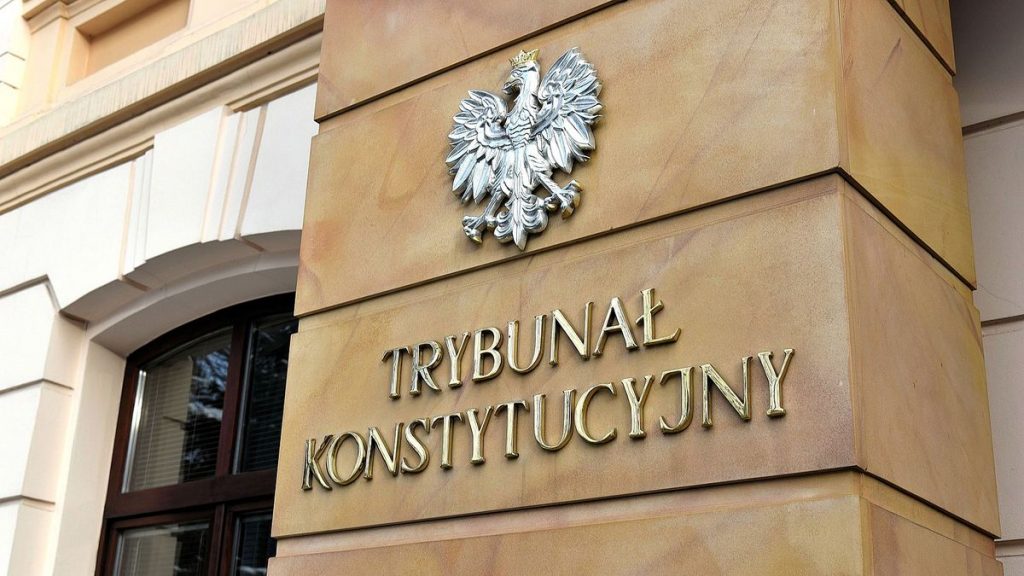Last updated on February 2nd, 2021 at 01:42 pm
On January 27, Poland’s Constitutional Tribunal officially published an earlier decision banning eugenic abortion. Last October the Tribunal ruled that performing an abortion in the case of a high probability of incurable disease of the child is incompatible with the provisions of the Polish Constitution that guarantee the protection of human life and human dignity. However, the full text of the act, including the written justification of the decision, had to be officially promulgated in order for it to enter into force.
In the Fall, the decision sparked outrage from abortion “rights” supporters, and mass protests were organized in Poland, accompanied by violent actions by radical activists and even acts of vandalism against Catholic churches.
It is not known for sure who was behind these actions. But it is known that similar mass actions of the feminist movement that took place in 2017 were staged by groups funded by organisations linked to billionaire George Soros. A detailed report on this was published by the Polish NGO “Ordo Iuris” [some details of which have been previously published here – Ed.]. It is very probable that in 2020 the influence of Soros’ network, traditional for such actions, was similarly at work.
One thing is clear—these actions were intended to intimidate the Polish authorities. To some extent, it succeeded: the publication of the decision, which was to take place on November 2, was postponed.
The pressure on a country determined to protect the lives of its unborn children in full accord with its Constitution did not stop there. Last November, the European Parliament stated that the judicial decision to do so was allegedly taken under pressure from the Polish government. In response, the President of the Constitutional Tribunal, for her part, accused the European Parliament of “unprecedented” interference in Poland’s internal affairs.
In Polish society itself, despite the illusion of mass pro-abortion protests, the idea of restricting abortion has far greater support. It suffices to recall that the civil initiative “Stop Abortion” in 2017 collected more than 830,000 signatures of citizens in support of a bill completely banning abortion.
Pro-life voices were also heard from abroad. For example, CitizenGO collected over 125,000 signatures on an international petition urging the Polish government “not to succumb to pro-abortion pressure, let the most vulnerable children down, and support the Constitutional Court’s verdict immediately, per the Polish Constitution”.
And, finally, it has happened. The decision of the Constitutional Tribunal has been published and has entered into legal force.
To quote its rationale:
“The Tribunal noted that the term ‘man’ has an autonomous character under the Constitution, independent of the meanings given in ordinary legislation.
From the essence of the inherent and inalienable dignity belonging to every human being and its homogeneity follows the prohibition of differentiating the value of a given human being and, therefore, his life. It is impermissible to claim that because of some characteristic one individual is worth less than another as a human being. This statement applies not only to the postnatal but also to the prenatal phase of human life. Regardless of the fact of birth, the attribute of a being, which is to be human, does not change.
The basis for this statement is the observation that the development of man and his personality is a gradual process that extends to the period before as well as after birth. That is to say, dignity, which is inherent and inalienable, and consequently the legal protection of life, cannot be arbitrarily restricted either to the fully formed person or from a particular moment in the prenatal development of the child. This protection applies to every living human being, and the period of life and the stage of development are irrelevant in this respect.“
Pro-abortion activists, of course, are preparing new protests. Presumably, George Soros and his organizations will willingly provide them assistance and financial support.
Meanwhile, the Polish government is going to implement the decision of the Constitutional Tribunal. Representatives of the ruling Law and Justice Party say authorities will now focus efforts on helping parents of children with disabilities.
“The state can no longer take a life away only because someone is sick, disabled, in poor health,” Polish Sejm deputy Bartlomiej Wroblewski told Reuters reporters.
Abortion remains legal in Poland in cases where pregnancy is the result of rape or directly threatens the life of the mother.
